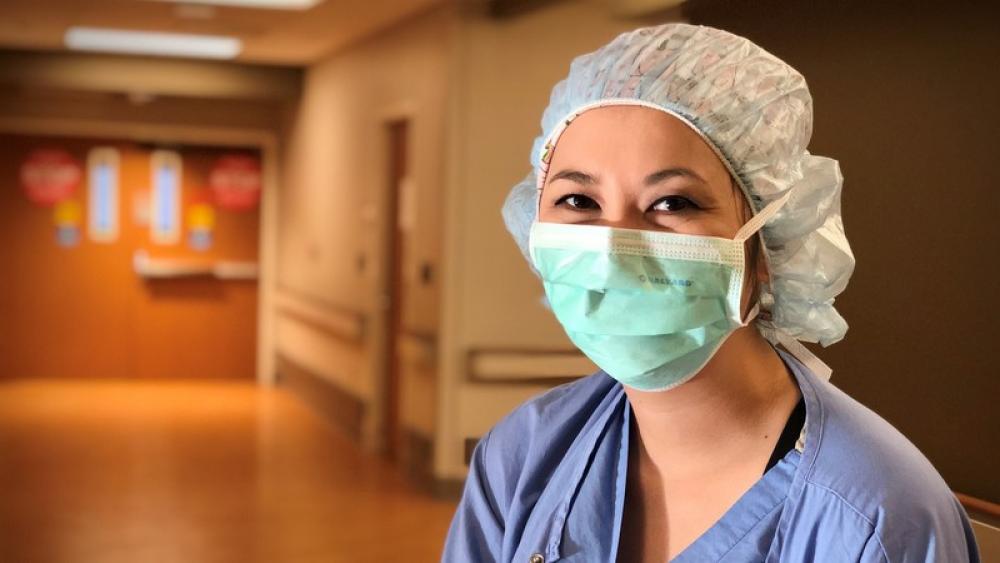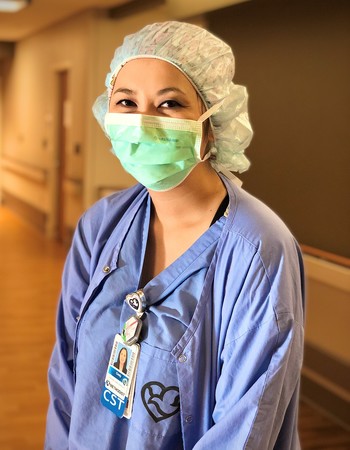




Today's Medicine
Surgical Technologists: 'The Sidekick to the Superhero When Saving Someone's Life'
Published: Sept. 20, 2020

She always knew she wanted to work in health care, but Cindy Heng thought that meant being a doctor. When she decided that medical school wasn’t for her, she did some soul searching, researching and even a bit of interest merging.
“I knew I still wanted to be in surgery somehow,” she said. “And I knew I wanted something hands-on.”

That’s when she stumbled upon surgical technology. Heng had never heard of such a thing.
“I always tell students that it’s about as close as you could be to being a surgeon without going to medical school,” said Janet McAdams, AA, CST, interim director of surgical technology at Nebraska Methodist College (NMC).
In high demand
Thanks to advances in medical technology, surgeries have become safer over the years. More procedures are being done to treat a growing number of injuries and illnesses. Because of this, employment for surgical technologists – individuals in charge of preparing operating rooms, arranging instruments and assisting physicians during surgery – is expected to increase 7% over the next decade. That’s faster than the average growth for all occupations.
According to McAdams, this could all equate to a lot of missed opportunity. Because like Heng, many people interested in health care don’t realize surgical technology is even an option.
“If I were to stop 10 people on the street and ask them, ‘Hey, do you know what a surgical technologist is?’ I’m not confident any of them would be able to say yes,” McAdams said.
With a median salary of more than $48,000, surgical technology is a good-paying job with room for growth and advancement. And McAdams wishes more people were aware of this.

More than just an instrument handler
Heng landed a cardiovascular surgical technologist position at Methodist Hospital shortly after graduating from NMC’s 22-month surgical technology program. A majority of NMC graduates, in fact, end up working for Methodist.
“My clinical rotations took me all over the area,” Heng said. “But I always knew I wanted to work here. Because of the people. And the family atmosphere. Everyone here is willing to teach everyone, and they all respect your skill set.”
Heng considers herself an “adrenaline junkie,” which may be why she loves the job so much.
“I think a big misconception people have about surgical technologists is that we just stand there and hand over instruments all day,” Heng said. “That couldn’t be further from the truth. I mean, we are right there. Sometimes we have our hands inside a heart. Other times we’re witnessing an emergent situation that requires our hands-on assistance. It’s always very high-stress, but everyone is calm.”
Organized chaos, she calls it. And she wouldn’t trade it for anything.
While many surgical technologists go on to pursue higher education, Heng isn’t so sure she will.
“Not yet, anyway,” she said. “Maybe I’ll consider PA (physician assistant) school one day, but I definitely don’t want to step away from surgery.”
The best and most challenging part
Being where all the action is – that’s easily Heng’s favorite part of the job. The most challenging part? Also being where all the action is.
“Like when a patient codes and loses their life,” she said. “You definitely take that home with you.”
But she always goes home knowing she did the best she could – that everyone on her team did the best they could.
“And when a code turns out well, and the patient survives? It’s so satisfying to know that you were part of that.”
Heng recommends the career to anyone who’s organized, detail-oriented and passionate about helping others. McAdams, who spent 18 years in the operating room herself, would, too.
“If you’re fascinated with the human body and surgical intervention, it’s an amazing job,” McAdams said.
“And if you want to be the sidekick to the superhero when saving someone’s life,” Heng added, “then, yeah, this is definitely the job for you.”
More resources
- Learn more about Nebraska Methodist College's Surgical Technology Program.
- Read about another lesser known health care career: medical assisting.
- Get similar articles delivered straight to your inbox.


